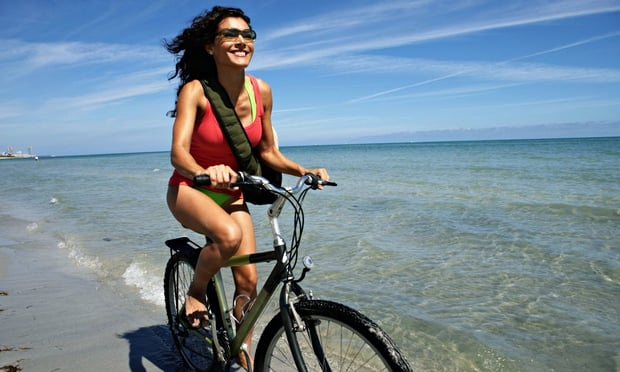One of the most popular, enduring, and irritating myths about depression is that it means depressed people are sad all the time – and that by extension, people who are happy can’t be experiencing depression, even if they say they are. It is a skewed and horrible version of depression, and it’s one that further stigmatises the condition and isolates people with depression and related mental health conditions. This is because, put bluntly, depression doesn’t make you sad all the time – though the level of sadness a patient experiences can of course vary depending on the individual and the severity of depression.
When I’m having a depressive episode, I’m not walking around in tattered black clothes, weeping and wailing. I go out with friends. I crack jokes (especially sardonic ones). I keep working, and have friendly chats with the people I work with. I often manage to feed and clothe myself, I read books. Above all, I experience moments of happiness: a flash of delight as I’m walking on the beach with a friend and the sun is perfect and the breeze is just right; a surge somewhere deep inside when I’m surrounded by beautiful trees and it’s raining and I feel my heart swelling to encompass the whole world; a warm, friendly, affectionate sensation at the touch of a friend, a hug at the end of an evening or a hand placed over mine as we lean forward to see something better.
Yet I feel a strange conflicting pressure. On the one hand, I feel like I need to engage in a sort of relentless performative sadness to be taken seriously, for people to understand that I really am depressed and that each day – each moment of each day – is a struggle for me, that even when I am happy, I am still fighting the monster. I feel like I need to darken everything around me, to stop communicating with the world, to stop publishing anything, to just stop. Because that way I will appear suitably, certifiably sad, and thus, depressed – and then maybe people will recognise that I’m depressed and perhaps they’ll even offer support and assistance. The jokes die in my throat, the smile never reaches my lips, I don’t share that moment of happiness on the beach by turning to my friend and expressing joy.
I don’t, in other words, do the things that can help ameliorate depression, encourage people to reach out, and help depressed people with functioning, completing daily tasks of life, and finding a reason to live again. I don’t find and build a rich community of people who can offer support (and whom I can support in turn), because I have to be so wrapped up in performing my sadness at all times to prove that I’m depressed enough – even as I want to scream that this is a reinforcement of stereotypes that hurt people, that by doing this I am hurting not just myself but others.
On the other, I feel an extreme pressure to perform just the opposite, because sad depressed people are boring and no fun, as I am continually reminded every time I speak openly about depression or express feelings of sadness and frustration. I’m caught in a trap where if I don’t perform sadness, I’m not really depressed, but if I express sadness at all to any degree, I’m annoying and boring and should stop being so self-centred. Thus I’m effectively pushed into fronting, putting a face on it even when I am depressed and deeply sad – when I feel like I am choking on my own misery, I put up a cheeky Tweet. When I hate myself and I want to die, I post a link to something fun, or I write up something silly to run somewhere – even though as I write it, I am drawn deeper and deeper into my unhappiness.
Depression is an asshole, and it can become your master, but you can slip out from under it occasionally. And many depressed people in the midst of an episode don’t actually spend it fainting dramatically on the couch and talking about how miserable they are. Some are high-functioning (bolstered by the need to put a face on it), others are into morbid jokes, others try to reach out for help (isn’t that what we’re “supposed” to do?) from friends and try to make their depression less scary. Depression isn’t an all-or-nothing deal – seeing a person who identifies with depression cracking a joke or having fun or dancing with a friend isn’t evidence that the person is faking it, whether the person is experiencing a moment of genuine happiness, or fronting. Conversely, jollying up people with depression to demand that they start being more fun is equally revolting, a refusal to acknowledge that people experiencing a rough day, or a rough week, or a rough few hours aren’t going to be your trained monkeys.
Depression manifests differently in everyone and at different times. Various behaviours are not proof positive that someone is or isn’t depressed, and, as with any armchair diagnosis, insisting that someone is not actually depressed just because of a show of something other than deep, entrenched sadness is actively harmful.
Look at the woman above, joyously cycling on a beach, hair fluttering in the breeze. You can’t judge her emotional state or her larger mental health picture, nor should you.
More about: Depression Mental-Health
















































